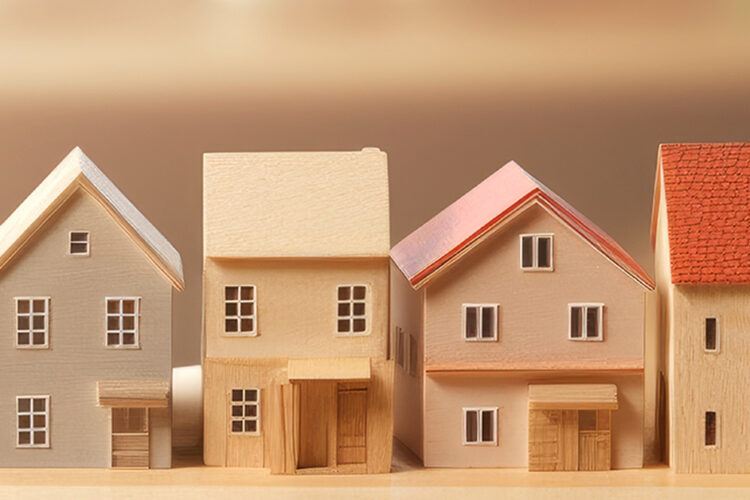In its first state budget in a decade, the NSW Labor government has announced a $2.2 billion Housing and Infrastructure Plan, along with rental reform and support for first home buyers.
NSW Treasurer Daniel Mookhey presented the 2023–24 budget, the first since the Labor government was elected to power in March.
In its budget, the government said Treasury is forecasting the budget deficit to reach $7.8 billion this financial year, followed by a modest $844 million surplus in 2024–25, a $1.6 billion surplus in 2025–26, and a $1.5 billion surplus in 2026–27.
In his budget speech, Mr Mookhey said: “NSW is in the midst of a fierce housing crisis. Rents are rising. Interest rates are climbing. Homeownership rates are falling. Demand for social housing is increasing. Homelessness is worsening.
“And the next generation fears permanent eviction from safe and secure housing.”
He continued: “Had we built more homes during the last decade – more homes could be bought or rented in this decade. But years of governments plodding means the state now needs deep systemic solutions to correct the flaws in the housing market.
“NSW needs to think laterally about how to add to the state’s housing stock. That means re-imagining the role of the government agencies we entrust to lead our housing interventions. Modernising them so their capabilities match the moment we live in.”
Mr Mookhey added that addressing the “chronic” housing shortage across NSW requires a long-term plan.
The 2023–24 budget includes measures for first home buyers (FHBs), renters, and victims of domestic violence, he said.
Housing and Infrastructure Plan
One of the major housing measures announced in the NSW budget is a $2.2 billion Housing and Infrastructure Plan. This includes:
- $300.0 million reinvested in Landcom to accelerate the construction of thousands of new dwellings, with 30 per cent for affordable housing
- $400.0 million reserved in Restart NSW for the new Housing Infrastructure Fund to deliver infrastructure to unlock housing across NSW
- $1.5 billion for housing-related infrastructure though the Housing and Productivity Contribution
The budget also includes the Faster Planning Program to address the shortage in new housing supply. This includes:
- $24.0 million to establish a NSW Building Commission to support “high quality” housing and protect homebuyers from “substandard” buildings
- $9.1 million to assess housing supply opportunities across government-owned sites, including for the delivery of new housing
- $5.1 million for an artificial intelligence pilot to deliver planning system efficiencies
- Overhauling and simplifying the planning system by redirecting resources from the Greater Cities Commission and Western Parkland City Authority
Homes NSW backed by the Essential Housing Package
The budget measures also address social housing and homelessness, with the announcement that Homes NSW will be established to deliver more affordable and social housing and reduce the number of homeless people in NSW.
The $224.0 million Essential Housing Package includes:
- $70.0 million debt financing to accelerate the delivery of social, affordable, and private homes primarily in regional NSW
- $35.3 million to continue to provide housing services for Aboriginal and Torres Strait Islander families through Services Our Way
- $35.0 million to support critical maintenance for social housing
- $20.0 million reserved in Restart NSW for dedicated mental health housing
- $15.0 million to establish a NSW Housing Fund for urgent priority housing and homelessness measures to confront the housing crisis
- $11.3 million to extend the Together Home program
- $11.0 million urgent funding injection to Temporary Accommodation in 2023–24 to address rising homelessness
- $10.5 million urgent funding injection to the Community Housing Leasing Program
- $10.0 million Modular Housing Trial to deliver faster quality social housing
- $5.9 million urgent funding in 2023–24 to allow Specialist Homelessness Services to address increasing demand.
In addition, the NSW government said it will permanently expand the number of social housing dwellings by around 1,500 through the $610.1 million Commonwealth Social Housing Accelerator program.
Measures for FHBs
The budget includes an expansion to the First Home Buyers Assistance Scheme to support FHBs with a stamp duty exemption for purchases up to $800,000 and a concession for purchases between $800,000 and $1 million.
“Five out of every six first home buyers will pay no stamp duty, or a concessional rate after the Government expanded stamp duty exemptions and concessions from 1 July 2023,” the budget said.
According to preliminary figures revealed in the budget, more than 1,000 FHBs purchasing in the $650,000 to $800,000 range have availed themselves of the full exemption from stamp duty in July under the scheme.
Rental reform
Renters will be afforded more protections with the appointment of a NSW rental commissioner who will work with the government to design and implement changes to make renting in the state more affordable.
The reforms include implementing a Portable Rental Bonds Scheme, protecting renters from unfair evictions by legislating reasonable grounds for ending a lease, and making it easier for renters to have pets in homes.
National Energy Bill Relief expanded
The budget includes measures that aim to increase affordability of electricity and provide relief from soaring energy bills.
Under the National Energy Bill Relief payment (introduced in July 2023 in partnership with the federal government), the measures included:
- $500 electricity rebate applicable to bills in 2023–24 for 1.6 million eligible families, pensioners, low-income households, veterans, carers, and self-funded retirees
- A one-off $650 bill relief payment for more than 300,000 eligible businesses using less than 100 MWh of electricity per year
The government is allocating new energy relief funding from 1 July 2024 to support households and families facing cost of living pressures, including:
- An increase in the Family Energy Rebate to $250
- An increase in the Seniors Energy Rebate to $250
- An increase in the Low-Income Household Rebate and Medical Energy Rebate to $350
- An increase in the value for each equipment type up to $1,639 under the Life Support Rebate.
If you’re looking to refinance for a better rate or are looking for the right rate for your clients at zero cost, contact Finni Mortgages’ experts and let us do the hard work for you.
Visit our website here or call 1300 002 023 to learn how we can help you!


